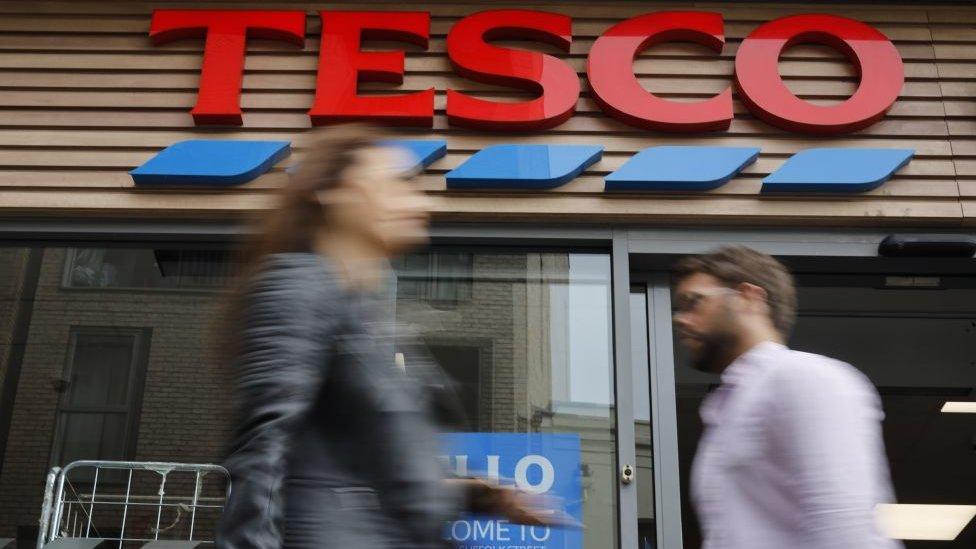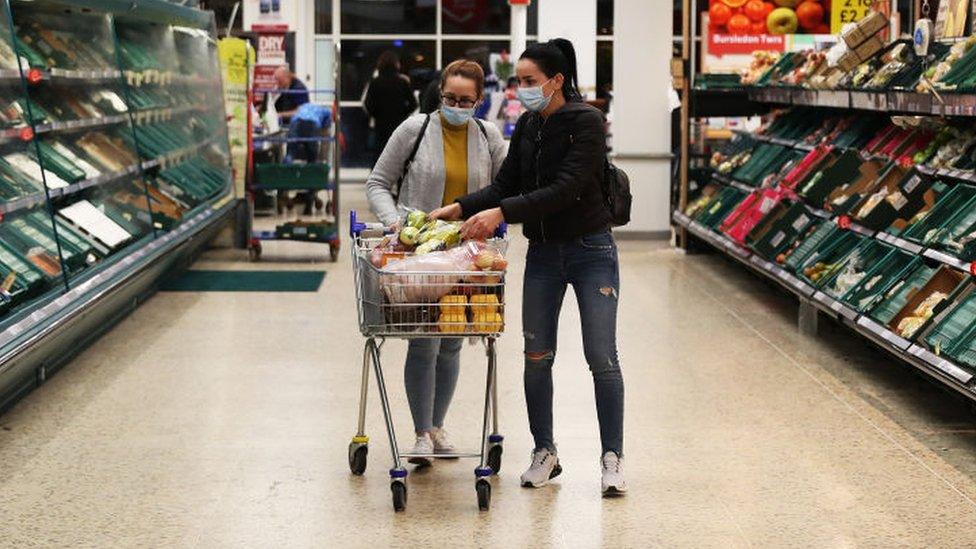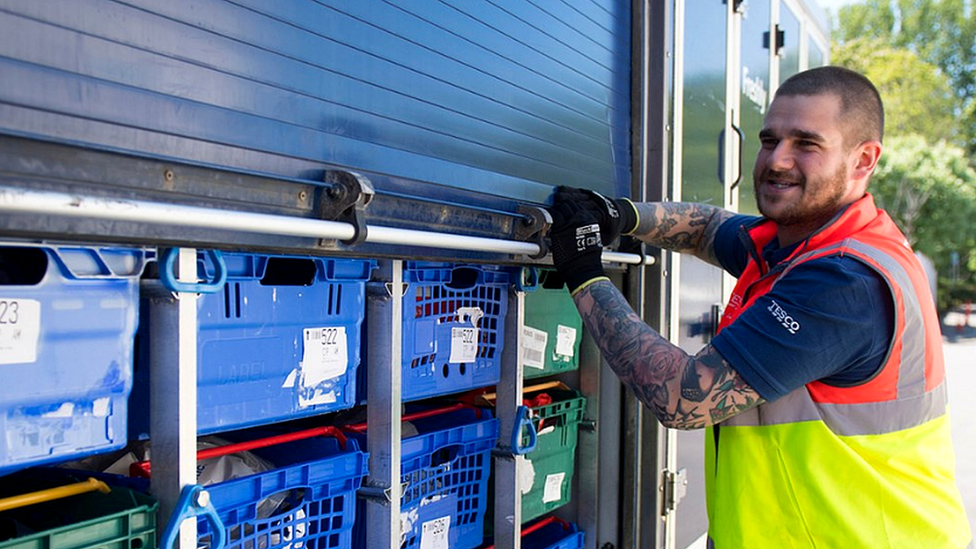Supermarkets repay rates relief after backlash
- Published
- comments

Tesco and Morrisons will together hand back more than £850m worth of business rates relief they received as support during the coronavirus crisis.
Tesco said it would repay £585m after it was criticised for paying dividends to shareholders.
Morrisons subsequently announced it had "brought forward" a decision on rates relief and would pay back £274m.
Tesco said the help to retailers had been a "game-changer" and hugely important at the time.
But it added that its business had proven "resilient" and it had now decided to return the money in full.
"We will work with the UK government and devolved administrations on the best means of doing that," it said.
In October, Tesco defended paying a £315m dividend to shareholders after reporting a 29% increase in profits for the first half of the year. Finance chief Alan Stewart told reporters it was the right policy.
Meanwhile, Morrisons said it would announce its dividend when it knows how much it has made this year.
Commenting on the decision to pay back the rates relief, Morrisons' chief executive, David Potts, said the supermarket chain had "done its best work" to meet the "enormous challenges" the pandemic had brought.
"We are grateful for the government's swift action at the start of the pandemic which enabled the whole sector to face squarely into the challenges and disruption caused by Covid-19," he said.
Business rates relief was extended to all retailers as part of a package of measures announced in March.
In March, Tesco was accused of "whipping up a huge lobbying operation" against a decision not to give its biggest stores in Wales financial help.
The Welsh government changed its mind and decided to grant business rate relief to all retail, hospitality and leisure firms.
Tesco is understood to have asked the Welsh government for an explanation of its thinking rather than a change in policy.
"The decision to repay business rates relief is one for individual companies to consider for themselves," said Tom Ironside, director of business and regulation at the British Retail Consortium.
"Many have used this money to cover increased costs as a result of Covid - hiring extra staff and making significant investment in the safety and protection of their premises. As such, there are many firms who simply cannot afford to repay this government relief."


While most of the public focus has - for obvious reasons - been on the furlough scheme, the business rates holiday for retailers and hospitality companies has been one of the main ways the government has tried to keep alive the companies most affected by pandemic closures. Like all coronavirus schemes, however, the rates relief was a blunt instrument - it went also to retailers who have stayed open throughout.
When those retailers decided to pay dividends to shareholders, there was an understandable outcry. Tesco was the object of most opprobrium; it said it would pay £315m to investors after reporting that pandemic trading had been buoyant.
Directors at the supermarket chain have obviously read the headlines. The company said it would repay the £585m it has had so far this year in business rates relief, while pointing out in passing that it estimated the pandemic had brought it £725m in additional costs.
The question now is whether other essential retailers - especially the big grocery chains such as Sainsbury's and Asda - will follow Tesco's lead. It would be surprising if they did not.
And while the repayments might appear like a public-spirited move, bear in mind the board may have had other motivations: in particular, a desire not to have the public support they have received hanging over them and preventing them from exercising their normal commercial judgement in paying dividends, approving bonuses and making deals.

Tesco said the money meant that it had had the immediate confidence, in the face of significant uncertainty, to invest in colleagues and support its customers and suppliers.
"Every penny of the rates relief we have received has been spent on our response to the pandemic. Our latest estimate at our interim results in October was that Covid would cost Tesco [about] £725m this year - well in excess of the £585m rates relief received.
"Ten months into the pandemic, our business has proven resilient in the most challenging of circumstances. While all businesses have been impacted - many severely so - we have been able to continue trading throughout, serving many millions of customers every day and although uncertainties still exist, some of the potential risks faced earlier in the year are now behind us."
Chief executive Ken Murphy said: "Giving this money back to the public is absolutely the right thing to do by our customers, colleagues and all of our stakeholders."
Related topics
- Published7 October 2020

- Published24 August 2020
